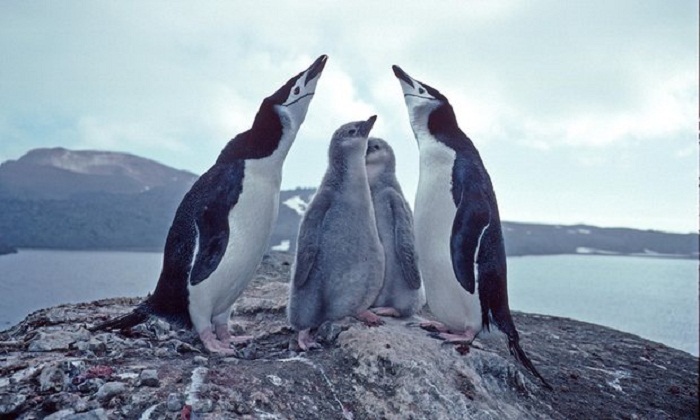The colony of chinstraps is the largest of the species in the world, but there are now fears over their fate due to the ash and smoke drifting from the volcano. It erupted in March and is still spewing columns of smoke that have been captured by satellite images and fishermen.
The island is so remote that experts at the British Antarctic Survey (BAS) say it will be impossible to assess what impact the eruption has had until an expedition visits in December 2016 or January 2017, but the risk to the penguins is that at worst they could be buried alive in ash, burned or suffer breathing difficulties.
The danger to the 55cm tall chinstraps comes from the fact the eruption began during their moulting season. During this time, which can last six weeks from the first to the last bird in the colony, the penguins are not waterproof and cannot go into the water.
“They can’t escape. We don’t really know how bad things are on the island, it may be that they’re fine, it may be that they’re not. But there is a concern,” said Mike Dunn, seabird ecologist at BAS. “Had they not been moulting at the time, there would be no issue at all, because the penguins would simply swim off.”
He added that consequences for the population could be “very significant”, a warning echoed by BAS geographer Dr Peter Fretwell who said the impact on the penguins could be serious.
The volcano is hundreds of metres from the penguin colonies to the east, south and north of the island, and the ash is being blown eastwards by prevailing winds.
Chinstrap penguins are a sub-Antarctic species that live close to, but not on, the continent. There are around 7.5m globally, and they live for 20-plus years, breeding two eggs each year, with chicks taking around three to four years to mature to adults. They nest on the surface of the ground, and feed on krill and fish.
Satellite images show Mt Curry is intermittently still blowing out plumes of smoke. It is the first time the island’s volcano has been witnessed erupting.
More about:
















































